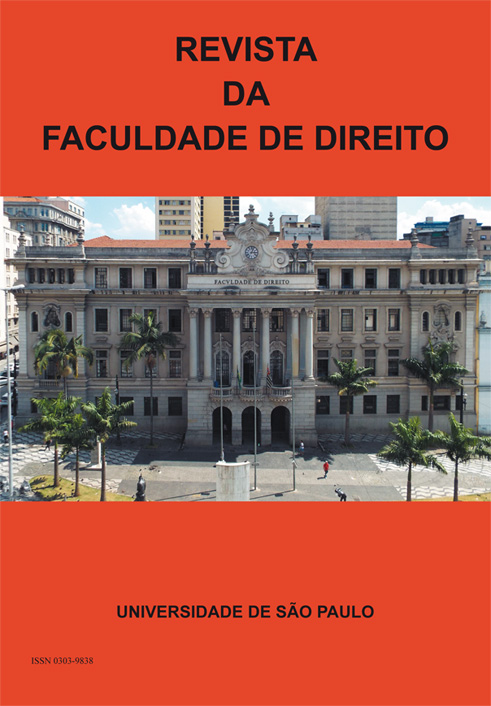Constitution and creation: the problem of representation
Keywords:
Politics, Language, Representation, Legitimacy, Constitution, Creation.Abstract
It has been a growing dissatisfaction in recent years on politics in general, and on the governments and rulers, in a specific way. This condition is expressed by an increase in the number of protests and the in quantity and variety of people who have protested. This tendency is quite broad, occurs in most countries, independently of the political regime. The feeling of unrepresentativity is in the core of this emerging movement, perhaps rooted in an illegitimacy even deeper that challenges the proper human experience and existence, which are placed in checkmate by an emptying instrumentalization of politics and language, by the power and persuasion themselves, not being enough the mere legality of a particular legal system. If, in the context of modern political history, the concept of representation is found, regardless of attribution in specific cases or conjectural valuation of such a concept, then the world has been in serious risk, considering an amorphous mediocrity and a silent violence that, in spite of being able to live for a certain period with structures and institutions more or less representative, prevent the movement of essential representation. Thus, it is necessary a deep understanding of the concept of representation and its practical realization through law, politics and language.Downloads
References
ARENDT, Hannah. Sobre a revolução. Tradução Denise Bottmann. São Paulo: Companhia das Letras, 2011.
ARISTÓTELES. A Política. São Paulo: Edipro, 1995.
CANFORA, Luciano. Crítica da retórica democrática. Tradução do italiano Valéria Silva. São Paulo: Estação Liberdade, 2007.
CÍCERO. Da República. São Paulo: Abril Cultural, 1973. (Coleção Os Pensadores).
DERRIDA, Jacques. A farmácia de Platão. Tradução Rogério da Costa. São Paulo: Iluminuras, 2005.
FREUD, Sigmund. O mal-estar na civilização, novas conferências introdutórias à psicanálise e outros textos (1930-1936). Tradução Paulo César de Souza. São Paulo: Companhia das Letras, 2010.
HEIDEGGER, Martin. A caminho da linguagem. Tradução Marcia Sá Cavalcante Schuback. Petrópolis: Vozes, 2011.
JAEGER, Werner Wilhelm. Paidéia: a formação do homem grego. São Paulo: Martins Fontes, 1986.
NIETZSCHE, Friedrich. O nascimento da tragédia: ou helenismo e pessimismo. São Paulo: Companhia das Letras, 2007.
ORTIZ, Isabel et al. World protests 2006-2013. Disponível em: <http://policydialogue.org/files/publications/World_Protests_2006-2013-Complete_and_Final_4282014.pdf>. Acesso em: 13 abr. 2015.
PLATÃO. Íon. Tradução Cláudio Oliveira. Belo Horizonte: Autêntica Editora, 2011.
SHAKESPEARE, William. The complete works. New York: Gramercy Books, 1990.
VOEGELIN, Eric. A nova ciência da política. 2. ed. Brasília: Ed. UnB, 1982.
WATSON, Alan. Repraesentatio in classical Latin. In: FAGGIOLI, Massimo; MELLONI, Alberto (Ed.). Repraesentatio: mapping a keyword for churches and governance. Proceedings of the San Miniato International Workshop. October 13-16, 2004. [s.l.]: LIT Verlag, 2006. p. 15-19. Disponível em: <http://digitalcommons.law.uga.edu/fac_artchop/9>. Acesso em: 12 abr. 2016.
Downloads
Published
Issue
Section
License
Copyright (c) 2017 Revista da Faculdade de Direito, Universidade de São Paulo

This work is licensed under a Creative Commons Attribution-NonCommercial-ShareAlike 4.0 International License.


